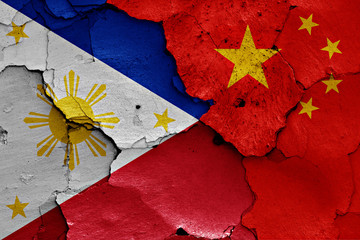Asteria Lending Inc. Unit 306 3/F 6762 National Life Insurance Bldg. San Lorenzo, Ayala Ave. Makati City
We’re Open: Mondays – Fridays
Office Hours:
9:00 am – 7:00 pm
Email:
[email protected]

This month’s visit of President Xi Jinping’s visit to Manila marks another turning point in Philippines-China relations. The visit is expected to raise bilateral ties to a new high and caps two years of warming ties oriented towards dispute management, confidence-building, and expansion of economic, security and people-to-people connections.
China recently extended grants for law enforcement, infrastructure, and humanitarian aid projects and inaugurated a new consulate in President Duterte’s hometown in Davao. Strengthened cooperation in areas of convergence, astute handling of disputes, and broadening security cooperation was key for the visit.
China became the Philippines’ biggest trade partner in 2016, the second largest foreign tourism market with the fastest growth in 2018 and was the most significant driver behind the Philippine construction boom in the past two years.
China’s purchases of locally-produced agricultural products have also gone up as it works to address the trade deficit and become the country’s largest goods importer. During the meeting, Duterte pushed for greater market access for Philippine agricultural and electronic goods in China.
To improve tourism, both China and Philippine are expected to open more direct flights and establish new routes to less subscribed Philippine tourist destinations. The fact that tourism continued to boom despite the six-month closure of the country’s most famous tourist island, Boracay, suggests that other destinations are rapidly becoming attractive to outsiders, including Chinese tourists, too.
As China sheds its industrial overcapacity and emerges as a significant outbound investor, the Philippines can position itself to absorb Chinese capital.
Sound political relations can serve as an excellent platform for this. Reforming its tax policy and rebuilding its aging infrastructure may provide the Philippines with a competitive edge in attracting outgoing Chinese enterprises reeling from the effects of increasing wages and an intensifying trade war with the U.S. In turn, Chinese trade, investment and tourism can deliver more affordable consumer goods, jobs, knowledge and technology transfer – a beneficial multiplier effect for local economies.
As China celebrates its 40th year of reforms, the Philippines could also take inspiration from China’s success in lifting over 800 million people out of poverty.
Addressing the socioeconomic divide is vital as the second most populous Southeast Asian nation is set to barge into upper middle-income country status next year. Philippine may also look to China’s contribution in addressing climate change by becoming the world’s largest producer of renewable energy as a model.
As the Philippines continues to fight the adverse effects of climate change and poverty, lessons from a country like China will be valuable. Harnessing the country’s wind, hydro and solar power potential can provide green, sustainable forms of energy to meet the country’s growing demand.
Prospects for synergy in connectivity are also bright: China’s Belt and Road Initiative and the Philippines’ Build, Build, build program have mutual goals. Many billion dollars’ worth of infrastructure projects were signed during Duterte’s 2016 state visit to Beijing; the Philippine leader also participated in the 2017 Belt and Road Forum. However, setbacks and delays continue to haunt local projects. Both sides held frank discussions on the problems confronting project implementation.
Key measures for success will be boosting capacity to conduct project preparation and feasibility studies, enhancing due diligence and risk mitigation, increasing Local Philippine content (e.g., labor, supplies), and improving the regulatory environment to ensure adherence to agreed standards and compliance with relevant Philippine laws.
President Duterte understands the transformative impact of greater connectivity as regards to addressing logistical and traffic bottlenecks, spurring countryside development and bolstering inter-island linkages, given the Philippines’ archipelagic geography.
In the troubled South China Sea, president Duterte and Xi were expected to affirm their shared position – that territorial and maritime disputes do not constitute the sum total of their two countries’ relations. Likewise, both leaders emphasized the importance of good neighbourly relations and the maintenance of regional stability.
Both leaders promised to continue to give full play to established bilateral and regional dispute management mechanisms and confidence-building measures. These include the Joint Coast Guard Committee for Maritime Cooperation, Bilateral Consultation Mechanism, MFA hotline communications, Code for Unplanned Encounters at Sea and ASEAN-China Code of Conduct negotiations.
Duterte was expected to touch on the issue of fishing access in the West Philippine Sea to allow for regular fishing activities unhampered by threat or intimidation. Both sides may also agree to assist or aid fishers in distress, such as during inclement weather.
The presidents may also commit to work with other littoral states to promote sustainable fishing and the conservation of marine biodiversity, prohibit destructive fishing techniques and practices.
Vital functional areas of cooperation, including security, were raised. China’s support in the fight against militants in the city’s post-conflict reconstruction and Marawi is appreciated. China’s donation for drug rehabilitation facilities, drug detection equipment, and information-sharing, which led to the biggest drug bust in Philippine history last May, was also received well in the Philippines.
Anti-piracy, counter-terrorism search and rescue, humanitarian assistance, disaster relief and efforts to combat trafficking, cyber and financial crimes represent new frontiers for non-traditional security cooperation. Information sharing and collaboration in busting financial and logistical networks of international terrorism provide an excellent platform for cross-border cooperation.
Plans to enhance defence ties started with the 2017 goodwill visit of Chinese naval vessels and continued this year with stops by a Chinese research ship and an aircraft for refurbishment and refuelling.
For the Philippine people, the latest relationship with China presents a substantial economic opportunity requiring strategic engagement.